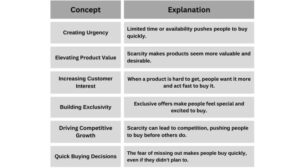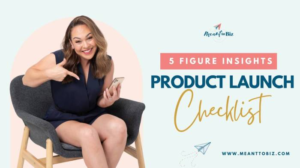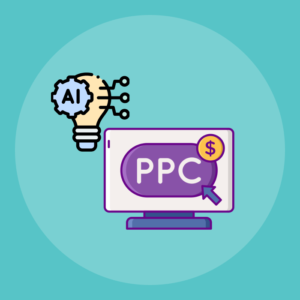
PPC campaign optimization tips are essential for anyone looking to enhance their online advertising efforts. With the ever-evolving digital landscape, mastering these strategies can significantly boost your ad performance and ROI. This guide explores key strategies that cover everything from audience targeting to leveraging link popularity, ensuring that your campaigns not only reach but resonate with the right audience.
The insights shared here will help you refine your ad copy, understand the importance of backlinks, and effectively integrate tools like paid surveys and podcasts into your marketing strategy. By the end of this guide, you’ll be equipped with practical tips and real-world examples that can elevate your PPC campaigns.
PPC Campaign Strategies
Optimizing your PPC campaigns requires a blend of strategic targeting, compelling ad copy, and continuous refinement. The aim is not only to drive traffic but to ensure that the right audience converts into customers. Below, we explore effective strategies that can elevate your PPC performance, focusing on audience targeting and ad copy refinement.
Audience Targeting Strategies
Fine-tuning audience targeting is crucial for maximizing the return on investment (ROI) from your PPC campaigns. By understanding your audience’s demographics, interests, and behaviors, you can create tailored ads that resonate more deeply. Here are some effective targeting strategies:
- Use Customer Personas: Develop detailed customer profiles based on current client data. These personas guide ad targeting, ensuring that campaigns are directed towards the most relevant audiences.
- Implement Remarketing: Target users who have previously interacted with your website. Remarketing keeps your brand top of mind and increases the chance of conversions.
- Leverage Geo-Targeting: Adjust your ads according to the geographical locations that yield the highest conversions. This strategy can significantly improve ROI by focusing resources where they matter most.
- Utilize Lookalike Audiences: Platforms like Facebook and Google allow you to create audiences that resemble your existing customers. This helps you reach new potential clients who share similar characteristics with your best performers.
Refining Ad Copy for Click-Through Rates
An impactful ad copy can drastically improve click-through rates (CTR), leading to better overall campaign performance. The language you use, along with the message structure, can significantly affect user engagement. Here are key elements to consider when refining your ad copy:
- Highlight Unique Selling Propositions (USPs): Clearly communicate what makes your product or service stand out. This should be apparent within the first few words to capture attention immediately.
- Incorporate Strong Calls-to-Action (CTAs): Use persuasive language that encourages users to take action. Phrases like “Get Started Today” or “Limited Time Offer” can create urgency.
- Utilize A/B Testing: Test different variations of ad copy to identify what resonates best with your audience. Changing a single word or the order of phrases can sometimes lead to significant improvements in performance.
- Keep It Concise: Ensure that your message is clear and direct. Users should grasp the key message quickly without digging through unnecessary fluff.
Examples of Successful PPC Campaigns
Analysis of successful PPC campaigns provides insights into what works best in the industry. These campaigns typically share common components that drive their success. Here are a few notable examples:
- Airbnb: Their campaigns often emphasize local experiences and unique property offerings. Eye-catching visuals paired with targeted messaging have resulted in high engagement rates.
- WordStream: This PPC management software company utilizes educational content in their ads. By promoting valuable resources, they attract clicks from users seeking to improve their PPC knowledge.
- Grubhub: Their ads often feature enticing visuals of food alongside promotional discounts. This combination of enticing imagery and clear CTAs drives click-through and conversion rates.
The key to a successful PPC strategy lies in understanding your audience, refining your messaging, and constantly optimizing based on performance data.
Link Popularity and Its Impact

Link popularity, often regarded as a critical factor in search engine optimization (), plays a significant role in enhancing the performance of Pay-Per-Click (PPC) campaigns. When your website garners backlinks from reputable sources, it signals to search engines that your content is valuable and trustworthy. This perception can lead to improved ad positioning and reduced costs per click, making link popularity an essential strategy to bolster your PPC efforts.Building link popularity is not just about accumulating links but focusing on quality and relevance.
Here are some effective strategies to enhance your link popularity, which in turn supports your PPC campaigns:
Strategies for Building Link Popularity
Quality backlinks can elevate your site’s authority, leading to better visibility in both organic and paid search results. To achieve this, consider the following tactics:
- Create High-Quality Content: Develop engaging, informative articles, infographics, or videos that provide real value to users. The more valuable your content, the more likely it will be shared and linked back to by others.
- Guest Blogging: Collaborate with reputable blogs in your industry by writing guest posts. This not only provides a link back to your website but also positions you as an authority in your niche.
- Engage in Social Media: Promote your content on social media platforms to increase its visibility. Social shares can lead to organic backlink generation as users find your content appealing and worthy of sharing.
- Participate in Online Communities: Join forums, discussion groups, and Q&A platforms related to your industry. By providing thoughtful insights and linking back to relevant content, you can drive traffic and build your link portfolio.
- Utilize Influencer Marketing: Partner with influencers who can promote your content to their followers, generating organic backlinks and increasing your site’s authority.
The relationship between backlinks and PPC performance is multi-faceted. Backlinks not only enhance organic search rankings but also improve the Quality Score of your PPC campaigns. A higher Quality Score leads to lower CPC and better ad placements.
“Improved Quality Scores can reduce costs, allowing businesses to allocate budgets more effectively across their campaigns.”
The role of backlinks in enhancing both ad visibility and conversion rates cannot be understated. Websites with strong link profiles tend to appear more credible to users, leading to higher click-through rates (CTR) on ads. This credibility fosters trust, prompting users to engage with your ads and ultimately converting at higher rates.In summary, focusing on building strong link popularity is a vital component of a successful PPC strategy.
By employing the right tactics to garner quality backlinks, you not only improve your website’s authority but also create a fertile ground for your PPC campaigns to thrive.
Leveraging Paid Surveys and Market Research

Paid surveys serve as a powerful tool for gathering audience insights that can significantly enhance the effectiveness of PPC campaigns. By understanding your audience’s preferences, behaviors, and pain points, you can create targeted advertisements that resonate with potential customers. This guide will explore how to efficiently use paid surveys to gather valuable insights and improve your PPC strategies.
Using Paid Surveys for Audience Insights
Conducting paid surveys can provide a wealth of information about your target audience. To effectively use surveys, it’s crucial to design questions that align with the objectives of your PPC campaigns. Here are some key techniques to consider:
- Focus on specific demographics: Collect data on age, gender, location, and income to better understand who your audience is.
- Inquire about preferences: Ask respondents about their favorite products, brands, and advertising platforms to tailor your PPC strategies.
- Gauge buying intent: Include questions that assess the likelihood of respondents purchasing specific products or services.
- Include open-ended questions: This allows respondents to express their thoughts freely, providing deeper insights into customer motivations.
Analyzing the results of your surveys is crucial in shaping your PPC strategies. The following techniques can help you derive valuable insights from your survey data:
Analyzing Survey Results for PPC Strategies
Effective analysis of survey data can provide actionable insights that inform your PPC campaigns. Consider the following approaches for analyzing your survey results:
- Segment data: Break down results by demographics to identify trends or preferences among different audience groups.
- Cross-tabulate responses: Compare different survey questions to find correlations between audience preferences and buying behaviors.
- Utilize statistical analysis tools: Employ software like SPSS or R to conduct more sophisticated analyses, revealing deeper insights.
- Visualize data: Create charts and graphs to illustrate findings, making it easier to interpret and present insights to your team.
The tools available for conducting effective paid surveys can greatly enhance your ability to gather insights. Below is a list of popular survey tools that can facilitate this process:
Tools for Conducting Paid Surveys
Selecting the right tools to conduct your surveys is critical for gathering high-quality data. Here are some widely used platforms that can help you conduct effective paid surveys:
- SurveyMonkey: A user-friendly platform that allows for custom survey creation with various question types and analysis tools.
- Google Forms: A free tool that provides easy-to-use features for designing surveys and collecting responses efficiently.
- Qualtrics: A robust platform designed for advanced market research, offering sophisticated question types and analytics.
- Typeform: Known for its engaging interface, Typeform makes surveys interactive, leading to higher completion rates.
- Amazon Mechanical Turk: An online marketplace where you can recruit participants for your surveys quickly and affordably.
Utilizing these tools effectively can streamline the survey process, ensuring that you gather relevant data to inform your PPC strategies. By leveraging paid surveys and market research, you can gain a competitive edge in targeting and engaging your audience more effectively.
Building a Podcasting Strategy for PPC
Podcasting has emerged as a dynamic platform that complements various marketing strategies, including Pay-Per-Click (PPC) campaigns. By weaving informative and engaging audio content with targeted advertisements, brands can create lasting connections with their audience. This segment will explore how to effectively integrate podcasting into PPC strategies, promote ads through podcast episodes, and highlight successful case studies of brands that have managed this integration seamlessly.
Framework for Integrating Podcasting into PPC Campaigns
Developing a coherent framework for blending podcasting with PPC campaigns can enhance brand visibility and audience engagement. A structured approach allows marketers to align podcast content with key PPC objectives, driving higher return on investment. Key components of this framework include:
- Identifying Target Audience: Understand who your audience is and what they listen to. This will inform the content and ad placements.
- Content Creation: Develop episodes that resonate with your audience while incorporating insights related to your products or services.
- Ad Placement Strategy: Determine the most effective points in the podcast to place ads, such as pre-roll, mid-roll, or post-roll slots.
- Call-to-Action (CTA): Incorporate clear and compelling CTAs in each episode to direct listeners towards your PPC offers.
- Performance Metrics: Define KPIs to measure success, such as clicks, conversions, and engagement levels.
Methods to Promote PPC Ads Through Podcast Episodes
Promoting PPC ads through podcast episodes involves strategic planning and execution to ensure that ads feel authentic and seamlessly integrated into the content. Here are effective methods to achieve this:
- Sponsored Content: Collaborate with popular podcasters to produce sponsored episodes that highlight your brand while providing valuable content to listeners.
- Listener Discounts: Offer exclusive discounts or promo codes during podcast episodes, encouraging immediate action from listeners.
- Engagement Segments: Create interactive segments where listeners can ask questions or share their experiences related to your products, enhancing relatability.
- Cross-Promotion: Promote your podcast through your PPC campaigns, directing traffic to the podcast for deeper engagement with your audience.
Case Studies of Successful Integration of PPC Advertising with Podcast Content
Examining successful case studies offers insights into effective strategies for integrating PPC with podcasting. Notable brands have leveraged this combination to enhance their marketing effectiveness:
- Blue Apron: In collaboration with popular podcasts, Blue Apron utilized mid-roll ads to promote meal kits, resulting in a significant increase in subscription rates and brand awareness.
- Dollar Shave Club: Through a series of entertaining podcast ads, they engaged listeners with humorous content that resonated well, leading to increased traffic and conversions on their site.
- Casper: By sponsoring sleep-related podcasts, Casper positioned their products in a contextually relevant way, driving significant PPC conversion rates from listeners who were already engaged in discussions about sleep.
Podcasting not only builds brand credibility but also enhances the effectiveness of PPC campaigns when executed strategically.
Product Creation and Launching Tactics
Creating a product that aligns with PPC advertising goals is essential for maximizing the effectiveness of your online marketing efforts. A well-thought-out product launch, supported by strategic PPC campaigns, not only enhances visibility but also drives relevant traffic that converts. Understanding the nuances of product creation and effective launch strategies can significantly influence your PPC success.Planning and executing a product launch with PPC support involves several key steps.
First, it’s crucial to identify the target audience and understand their needs and preferences. This research informs product development and shapes messaging that resonates with potential customers. Secondly, consider the timing of the launch to align with peak search volumes and relevant events in the industry. Lastly, setting clear goals for the PPC campaigns—such as driving traffic, generating leads, or achieving sales—is vital to measure success and tweak strategies in real time.
Steps for Creating Products that Align with PPC Advertising Goals
To ensure your product aligns well with PPC advertising goals, follow these steps:
1. Market Research
Conduct thorough research to identify gaps in the market and customer pain points. Understanding what your audience wants sets the foundation for product creation.
2. Product Development
Focus on creating a product that not only fills those gaps but also stands out from competitors. This should include unique features or benefits that make it appealing.
3. Optimization
Choose relevant s during the product development phase. This ensures that your product is easily discoverable through paid search efforts once it’s launched.
4. Landing Page Creation
Develop a dedicated landing page that highlights the product’s features, benefits, and includes strong calls-to-action. This page should be optimized for PPC campaigns to drive conversions effectively.
5. Testing
Before full-scale launch, test the product and the associated PPC campaigns with a smaller audience to gather feedback and make necessary adjustments.
Planning and Executing a Product Launch with PPC Support
A well-structured product launch with PPC support can significantly amplify reach and engagement. Here are essential components for execution:
Pre-Launch Awareness
Build anticipation through teasers on social media and email marketing. Use PPC campaigns to target potential customers, driving awareness before the official launch.
Launch Day Strategy
On launch day, focus PPC efforts on driving traffic to the product landing page. Use targeted ads that emphasize urgency, such as limited-time offers or exclusive deals.
Post-Launch Follow-Up
After launching, continue to engage with customers through remarketing strategies. This keeps the product top of mind for potential buyers who may not have converted initially.
Comparison of Different Product Launch Strategies and Their Effectiveness in Driving PPC Traffic
Different product launch strategies can yield varying results when it comes to driving PPC traffic. Here’s a comparison of some popular tactics:
Soft Launch
Testing the product with a limited audience can provide valuable insights and fine-tuning opportunities before a broader rollout. This strategy may lead to lower initial PPC traffic but can improve conversion rates due to refined messaging and targeting.
Hard Launch
A full-scale launch with heavy PPC support can generate significant traffic quickly. This approach is best for products with established demand or in competitive markets where visibility is key.
Phased Launch
Gradually releasing the product to different segments of the audience allows for testing and adjustments along the way. This method can help maintain a steady stream of PPC traffic over time but may slow initial momentum.The effectiveness of each strategy ultimately depends on product type, target market, and overall marketing objectives. By selecting the right approach and aligning it with PPC goals, businesses can maximize their product launch success and drive substantial traffic.
Summary
In conclusion, effective PPC campaign optimization is crucial for driving traffic and increasing conversions. By implementing the strategies discussed, such as refining your ad copy, enhancing link popularity, and utilizing innovative tools like podcasts, you can create a more compelling and successful advertising approach. Remember, the key to PPC success lies in continuous learning and adaptation to market trends.
Detailed FAQs
What is the best way to improve my PPC ad copy?
Focus on clarity, relevance, and strong calls to action while testing different variations to see what resonates best with your audience.
How can link popularity influence my PPC campaigns?
Higher link popularity can enhance your ad visibility and credibility, leading to better click-through rates and conversions.
What tools can I use for conducting effective paid surveys?
Consider platforms like SurveyMonkey, Google Forms, or Typeform, which provide user-friendly interfaces for gathering audience insights.
How do I integrate podcasting into my PPC strategy?
Create engaging content that subtly incorporates your ads, and promote your campaigns through dedicated podcast episodes to reach a broader audience.
What key factors should I consider when launching a product with PPC support?
Align your product features with audience needs, plan your launch timeline effectively, and utilize targeted ads to generate buzz and drive traffic.





